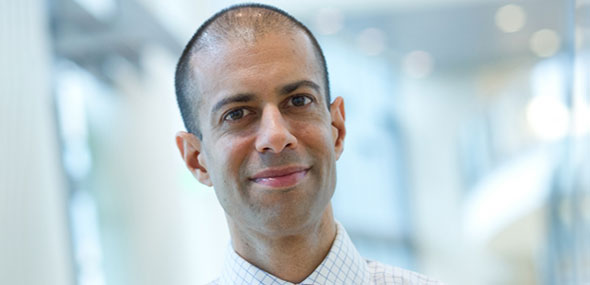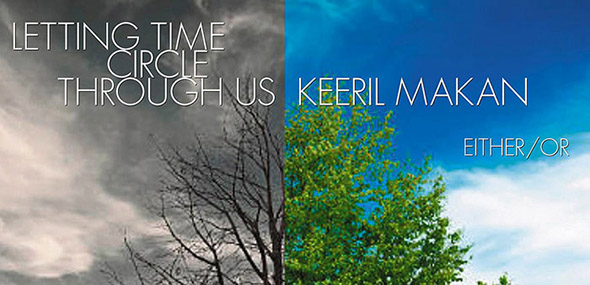Said and Done | In the Media | October 2017

A section of Said and Done
Full October 2017 Edition
WRITING
If Puerto Rico means anything to you, step up now | Junot Díaz
“If Puerto Rico is going to have any kind of future, the love that we feel for it must not only double, it must triple. We must come to the line. If Puerto Rico means anything to you, we have to step up.” The author described Hurricane Maria’s aftermath as “beyond anything that we have seen in 500 years.”
Video at Huffington Post
ECONOMICS
Welcoming our new robot overlords | David Autor
“It’s not that we’re running out of work or jobs per se,” says MIT economist David Autor. “But a subset of people with low skill levels may not be able to earn a reasonable standard of living based on their labor. We see that already.”
Story at The New Yorker
LITERATURE
Marah Gubar interviews children’s author James Kennedy
MIT literature professor Marah Gubar talks to Kennedy about the 90-Second Newbery Film Festival, an annual make-your-own-video contest that invites young readers to condense any Newbery Award–winner down to a 90-second film.
Read the interview at Public Books | Gubar's webpage
Marah Gubar, Associate Professor of Literature (photo Bryce Vickmark)
COMPARATIVE MEDIA STUDIES / WRITING
‘Will & Grace’ reduced homophobia; can it have an impact today? | Edward Schiappa
“For those viewers with the fewest direct gay contacts,” explains MIT CMS/W head Edward Schiappa, “exposure to Will & Grace appears to have the strongest potential influence on reducing sexual prejudice, while for those with many gay friends, there is no significant relationship between levels of prejudice and their exposure to the show.”
Story at The Washington Post
ECONOMICS
Biases may invalidate conclusions drawn on voters' behaviour | Daniel Aronoff, MIT Economics PhD candidate
Gillian Tett writes of the new and potentially nefarious use of Big Data to peer more deeply into the underlying causal factors that determine our choices in order to influence elections. The narrative is intriguing, but these methods may be less effective than they appear."
Commentary at Financial Times (subc req)
POLITICAL SCIENCE
Q&A: America’s options on a nuclear North Korea | Vipin Narang
The Wall Street Journal's Shelby Holliday talks to three experts, including MIT's Vipin Narang, about the dangers and possible outcomes of President Trump's rhetorical conflict with a nuclear North Korea.
Story at WSJ | Narang's MIT webpage
More stories featuring analysis by Narang:
What happens if North Korea tests a hydrogen bomb over the Pacific? | CNN
No one wants another H-bomb test in the Pacific | Popular Science
Are North Korean missile tests a risk to commercial planes? | BBC

Vipin Narang, Mitsui Career Development Associate Professor of Political Science
(Photo: Stuart Darsch)
ECONOMICS
Boys are not defective | David Autor
An analysis of educational disparities in the Middle East cites recent research by MIT economist David autor, which found that boys may be particularly harmed by bad schools and especially responsive to strong schools.
Story at The Atlantic
ECONOMICS
A People's Choice Guide to the Economics Nobel | Esther Duflo
Cass Sunstein leads his list of potential Nobel laureates off with MIT economist Esther Duflo, who has led a methodological shift in the field from mathematical models to randomized trials and field data collection.
Bloomberg News Online
LITERATURE
Seuss flap points to beloved author's mixed legacy
Marah Gubar, a scholar of children's literature at MIT, said Seuss is remarkable because his ideas about race were not fixed. “He changed and, in that sense, Dr. Seuss is a model,” she said. “He was willing to acknowledge he had made mistakes, he had been insensitive, and he evolved over time.” It's important, Grubar said, that parents and others are becoming more aware of Seuss' use of racial caricatures.
Story in The Boston Globe
MUSIC
A sonorous landscape of vast horizons | Keeril Makan
A Boston Globe review of MIT Music faculty Keeril Makan's new album, “Letting Time Circle Through Us,” calls the composition “a sonorous, strongly tonal landscape whose horizons seem vaster than what six musicians could produce.”
Story at the Boston Globe | Makan's website
"Makan creates a succession of fresh and inventive colors, especially when he places two unusual instruments — glockenspiel and cimbalom — in dialogue. Eventually the friction between the two species of music reaches a culmination, and the denouement that follows reconciles them in a sort of quiet ecstasy not unlike the conclusion of Stravinsky’s ballet 'Les Noces.'"
— The Boston Globe
A section of Said and Done
Full October 2017 Edition
